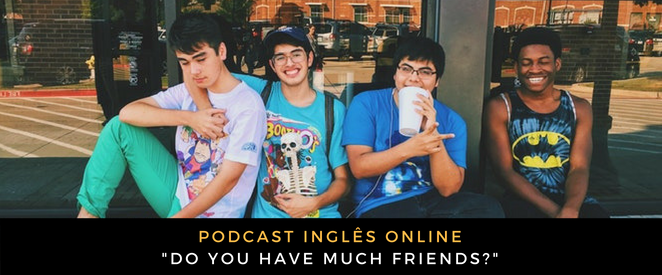One day i was chatting with someone by skype. He is not a native speaker and is learning english too. So he wrote ‘ i don’t have many time to study’ . I was confused and I wrote ‘ no, you must say much time, no many time’. did i am right on it?
Just wanna say: thanks!
Helo Ana! Thank you for this amazing lesson! Can’t wait for the next one!
Obrigada, Ana! Mais uma dica utilíssima!!
Hey Ana,
Speaking of which, I have to admit that sometimes I really feel kind of uncomfortable talking to british people. it seems to me that their accent sounds harder than american native speakers and besides, there are too many words and expressions only used in british english. If you don’t mind, let me share a good source where your listeners can find out lots of examples related to british english in everyday conversation:
‘The English we speak – http://www.bbc.co.uk/worldservice/learningenglish/language/theenglishwespeak/
Take care Ana
Hi Ana Luiza, how’s it going?
I just wanted to say that I found this post really interesting specially because even though I’ve been learning English for about four years now, from time to time I will blurt out a a silly mistake like this one, which, more often than not, will make me feel “awful” for having done so. Sadly, here in Brazil, we have this “mistake pointer thing” embedded in our culture. I myself experienced this very same “embarrassing” situation. I corrected myself right away. Nevertheless a mistake was made.
You know what comes to my mind after listen to this podcast, once my english
teacher was teaching to the class this two words. When she finished explain the material I asked her how would I know whether I have to use much or many when I’m speaking. I mean, when you are speaking you don’t have the time to think if it’s something you can count or not.
Now i know the answer. After listen so many times, it gets so much easier.
Thanks for the podcast Ana!
It´s crazy because when we start to think and speak in english you dont think about rules…you just say it! After a while becames just natural… #crazy but #true
Obrigado, Ana, por mais esta ótima dica.
Raymundo
Hi Ana!!!how have you been in the UK!?by the way,GREAT PODCAST!
Essas duas palavrinhas podem causar mt confusao,sera pq q eles tem duas ou mais palavras pra tudo einh?tipo em portugues a gente usa a palavra MUITO pra tudo!kkkkkkkk anyway…well,I haven’t much money but I have much motivation to keep studying English by myself!thanks Ana you’re the best !
Quando comecei a aprender inglês, uma das dificuldades era lembrar quando usar many ou much. Logo vi que a única maneira de fixar a lição era lembrar e fazer uma conexão com certos exemplos para mim já bem colados, tais como “how many peoples…” ou “how much coffee…” . Enfim, a melhor maneira de aprender inglês, como qualquer outra língua, inclusive a nossa, é entrar em contato com ela em seu uso prático e não apenas tentar guardar palavras isoladas e regras.
Hi,Ana !
Primeiramente eu gostaria de te agradecer muito, porque você esta me ajudando muito mesmo. Eu estou ouvindo seus podcast e quando eu vejo que já “dominei” certo podcast eu leio e gravo o meu audio,mas enfim,não sei se este é o lugar certo para te perguntar isso, mais acabou de cair uma duvida cruel em minha cabeça neste exato momento.Bem neste momento eu estava proucurando outras coisas para melhorar meu listening e eu li isto :
“I usually tune up some radio station on the web and leave it there playing, even if I’m not paying attention on what they are saying. This is also important because English Language will be there in the atmosphere around you, in this way, you’ll be surrounded by English and as I wrote before, even if you’re not paying attention, English will be entering in all levels of your mind. This really helps to improve, not only the listening but also your vocabulary and accent. Just live it there playing, because this will have the same effect as we have with our Portuguese in a natural way as far as we are surrounded by a lot of people speaking it. Do it as much as you can, because this really helps”.
So this is true ?
Mil desculpas por perguntar isto aqui,mais por ser o ultimo podcast postado,eu achei que poderia adquerir uma resposta mais rápida heheh ;p
Hi Morgan,
If you let me share my opinion with you,I believe that we have to be carefull about lesson something that is not totally understable.
I think that might be more noise than helpful.
I apologize for my mistakes.
Regards.
Oi Ana Luiza, tudo bom?
Adoro seu podcast, tem me ajudado muito nos meus estudos.
Nesse novo episodio, qdo comecei a ouvir estava o mesmo
audio de um outro episodio o “como eu falo ingles: Ele me chamou de lado”
eu assino pelo ipod.
abraços


